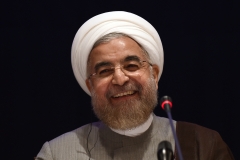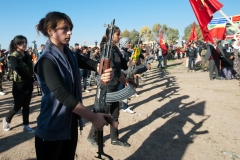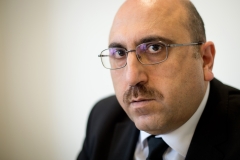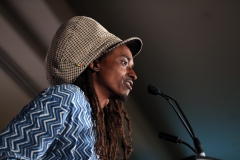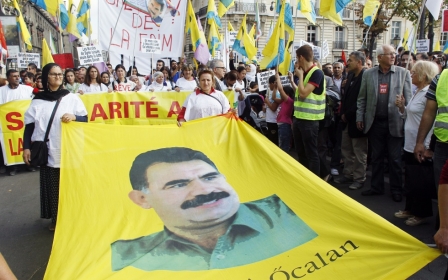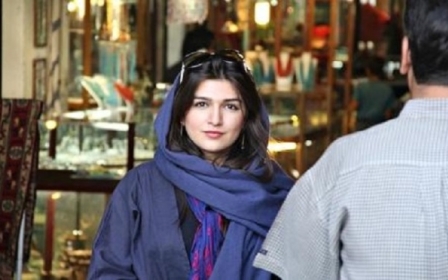Who are the most influential thinkers in the Middle East?
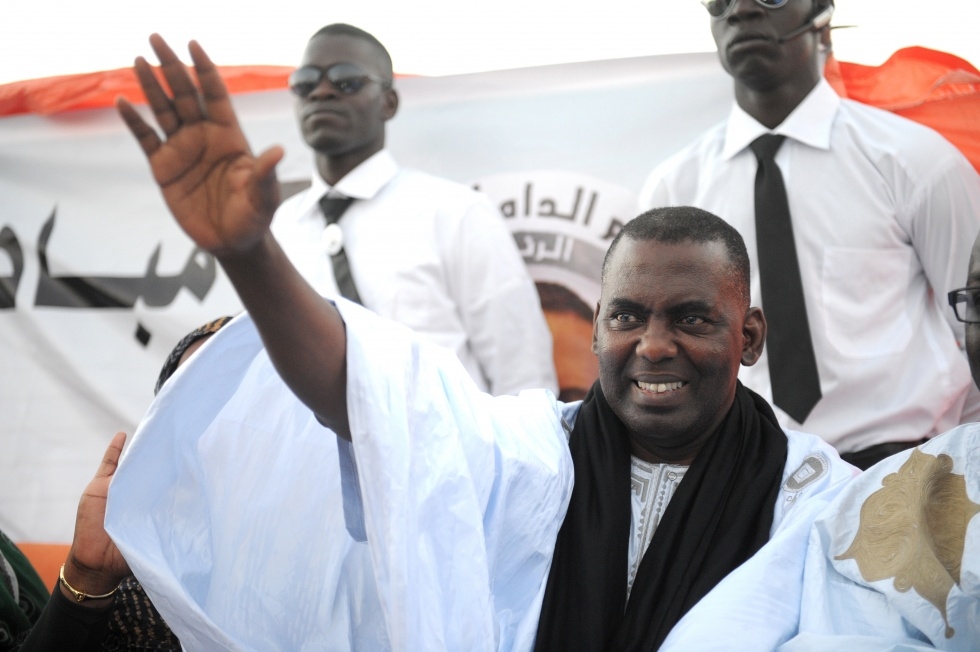
Foreign Policy has announced its list of 2014’s 100 most influential thinkers, continuing a tradition that sees the magazine handpick who it considers to be the year’s most significant political, intellectual and artistic movers and shakers.
Middle East Eye breaks down the list here by taking a glance at prominent figures from the Middle East who feature on the roll call. 2014 clearly represents another noteworthy year for the region – for better or worse – with 16 Middle East personalities making it on to this year’s roster.
Agitators
Abu Bakr al-Baghdadi
While his early days remain obscure, this Iraqi-born militant has been thrown violently into the centre of attention after Islamic State made lightning gains through Syria and Iraq in 2014. Announced as leader of a former iteration of the group in 2010, Baghdadi was an active fighter who opposed the US led invasion of Iraq in 2003. He was recommended for release by the US after the country’s troops captured him in 2005.
Hajjaj Al-Ajmi and Abd al Rahman Khalaf al-Anizi
Al-Ajmi and al-Anizi make it on the list as a double act who take the title of major fundraisers for Islamic State and the al-Qaeda affiliated al-Nusra Front. Ajmi, a young cleric from a prominent Kuwaiti family, had a Twitter following of 470,000 before his account was shutdown in August 2014. Anizi also stands accused of funnelling donations from Kuwait to Syria.
Jihadi John
Believed born in the UK but now firmly ensconced alongside Islamic State members in the Middle East, the mysterious figure was dubbed “Jihadi John” after his English accent was heard during a video broadcasting the gruesome beheading of American journalist James Foley. The execution makes up the backdrop to the US-led decision to begin airstrikes against Islamic State and its affiliates in Syria.
Decision-makers
Hassan Rouhani
Rouhani’s star is clearly still on the rise, having appeared for the second time in a row among the year’s most influential thinkers. A moderate figure who was elected president in 2013, Rouhani continues to present a positive outlook on negotiating Iran’s nuclear programme in the face of intense pressure from hardliners at home.
Challengers
While some have charged Western media with fetishizing this group of fighters, women from Iraq’s peshmerga – the armed forces of Iraq’s northern Kurdish region – and Syria’s People’s Protection Units have played a significant role in combatting Islamic State advances. Though not a straightforward illustration of Kurdish progressive gender politics – some resort to these forces to escape patriarchal modes at home – many of these women are highly educated as well as being fierce fighters.
Houcine Abassi
In a quiet corner of North Africa, Tunisia continues on its path as the Arab Spring’s only successful democratic transition. Abassi, the leader of the country’s most powerful and important trade union, the General Union of Tunisian Workers, has been key to this process. A relative unknown, he began directing Tunisia’s roadmap towards passing a constitution in 2013, paving the way for its signing into law in January 2014.
Innovators
Arye Kohavi
Surprisingly, Kohavi’s development of a technology to turn desert air into drinkable water wasn’t the first of its kind. But this Israeli appears in the list for beating earlier models and creating a more efficient technology, opening the way to help some of the hundreds of millions around the world who lack clean drinking water.
Advocates
When you scan newspaper figures in the morning and see fresh evidence of ever rising death tolls, you might not think of the heroic work behind the scenes to verify these horrifying numbers. Abdul Rahman’s Syrian Observatory for Human Rights has documented every death and military development in the country, becoming a vital source of information for those outside the country. In Israel, El Ad’s human rights organisation B’Tselem has continued to demand accountability from both sides of the conflict by counting civilian deaths and military infractions.
Biram Dah Abeid
According to a report published on Monday, more than 35 million people are trapped in a modern form of slavery. Mauritania has the highest proportion of its population in this category at 4% or 150,000. Dah Abeid’s Initiative for the Resurgence of the Abolitionist Movement aims to educate those in servitude of a life beyond their bondage. He is a tireless campaigner and activist who brooks no coexistence with enforcers of the status quo.
Chroniclers
Hajooj Kuka
Farah Baker
Baker shot to media and world attention during the 51-day war offensive launched by Israel in Gaza this summer. Her live tweets gave a human voice to a political narrative, a gap that needed to be filled if we take as evidence her jump from 800 to 200,000 followers in the space of a few weeks.
Maymanah Farhat and Mohannad Orabi
Farhat, a gallery director and arts writer, decided this year to go beyond headlines by exhibiting visual art that evoked the agony of an artist’s country. Her decision inspired a number of pieces, chief among them the haunting iconography of Syrian born Mohannad Orabi, whose enlarged portraits bore into the viewer. They call to attention the artistic traditions torn apart by the human tragedy of the Syrian war.
Moguls
Reema Bint Bandar Al Saud
Not your average princess, Reema Al Saud is also the chief executive of Alfa International, a luxury retail corporation in Saudi Arabia, a country whose social mores do not encourage women to play an active role in the workforce. But as women trickle into Saudi’s private sector, Princess Reema aims to provide a guiding light by hiring women into her workforce, providing them with transportation as well as in-house day care for their children.
Middle East Eye propose une couverture et une analyse indépendantes et incomparables du Moyen-Orient, de l’Afrique du Nord et d’autres régions du monde. Pour en savoir plus sur la reprise de ce contenu et les frais qui s’appliquent, veuillez remplir ce formulaire [en anglais]. Pour en savoir plus sur MEE, cliquez ici [en anglais].


